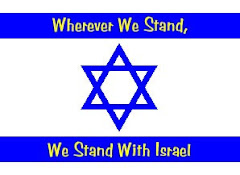
There many words to describe the spectacular northeastern corner of Oregon. (Paradise, beautiful, breathtaking, incredible.) The snow-capped mountains around Wallowa Lake are Oregon’s “Little Switzerland”. The rich history of the region is forever connected to the story of Chief Joseph and the Nez Percé (Pierced Nose) Indians.
"Chief Joseph" was born in the Wallowa Valley in 1840. He was given the name “Hin-mah-too-yah-lat-kek”t, or “Thunder Rolling Down the Mountain”, but he was widely known as Joseph, or Joseph the Younger, because his father had taken the Christian name Joseph when he became a Christian. - If you ever lived in the mountains, you know that the sound of thunder grows as it echoes from the mountains.
While initially hospitable to the region's newcomers, Joseph the Elder grew weary when settlers wanted more Indian lands. Tensions grew as the settlers appropriated traditional Indian lands for farming and grazing livestock. The “settlers” were mostly Europeans, who forcibly took the land from the native Indians.
With 2,000 U.S. soldiers in pursuit, Joseph and other Nez Percé chiefs led 800 Nez Percé toward freedom at the Canadian border. For over three months, the Nez Percé outmaneuvered and battled their pursuers traveling 1,700 miles (2,740 km) across Oregon, Washington, Idaho, Wyoming, and Montana. General Howard, leading the opposing cavalry, was impressed with the skill with which the Nez Percé fought, using advance and rear guards, skirmish lines, and field fortifications. Finally, after a devastating five-day battle during freezing weather conditions with no food or blankets, Chief Joseph formally surrendered to General Nelson Appleton Miles on October 5, 1877 in the Bear Paw Mountains of the Montana Territory, less than 40 miles (60 km) south of Canada in a place close to the present-day Chinook in Blaine County. The battle is remembered in popular history by the words attributed to Chief Joseph at the formal surrender:
"Tell General Howard I know his heart. What he told me before; I have it in my heart. I am tired of fighting. Our chiefs are killed; Looking Glass is dead, Too-hul-hul-sote is dead. The old men are all dead. It is the young men who say yes or no. He who led on the young men is dead. It is cold, and we have no blankets; the little children are freezing to death. My people, some of them, have run away to the hills, and have no blankets, no food. No one knows where they are—perhaps freezing to death. I want to have time to look for my children, and see how many of them I can find. Maybe I shall find them among the dead. Hear me, my chiefs! I am tired; my heart is sick and sad. From where the sun now stands, I will fight no more forever."
In his last years, Joseph spoke eloquently against the injustice of United States policy toward his people and held out the hope that America's promise of freedom and equality might one day be fulfilled for Native Americans as well. An indomitable voice of conscience for the West, he died in 1904, still in exile from his homeland, according to his doctor "of a broken heart."
According to the dictionary a settler is someone who settles in new land, like the Europeans in America.
The story made me think of Israel today. - Why are Jews called “settlers” in Israel? Didn’t they simply return to their own country? They didn’t conquer new land that never belonged to them before. They simply returned to their ancient homeland.
Wouldn’t that make anyone else who lived there and conquered their land a settler?
Who is a "settler" in the Mideast? According to the Arabs, only Jews are "settlers." But that simply is not true. Think about it! Arafat himself was born in Egypt. He later moved to Jerusalem. While he was living in the West Bank, he was a "settler" there, not a native.
Indeed, most of the Arabs living within the borders of Israel today have come from some other Arab country at some time in their life. Aren’t they the "settlers"?







No comments:
Post a Comment